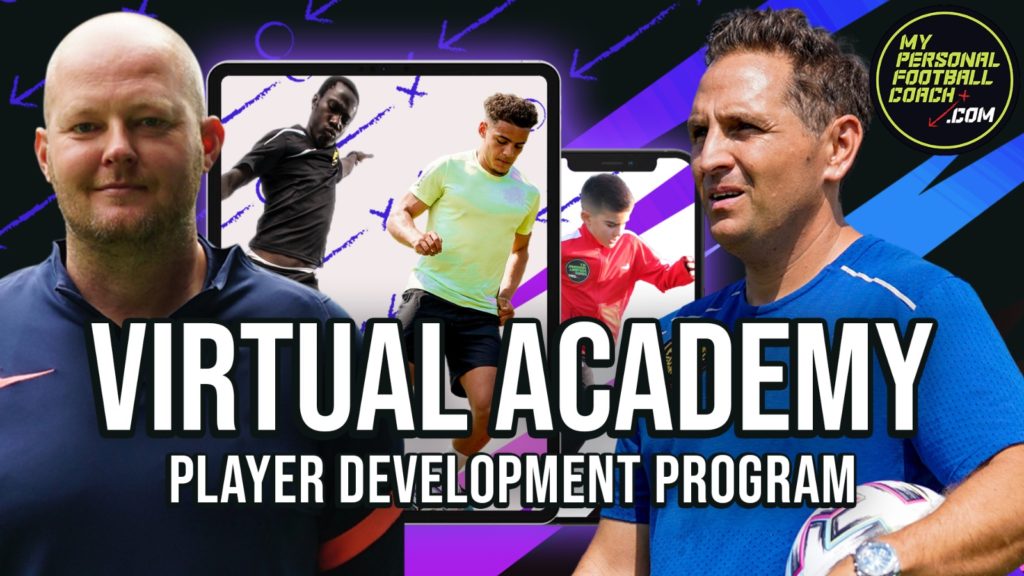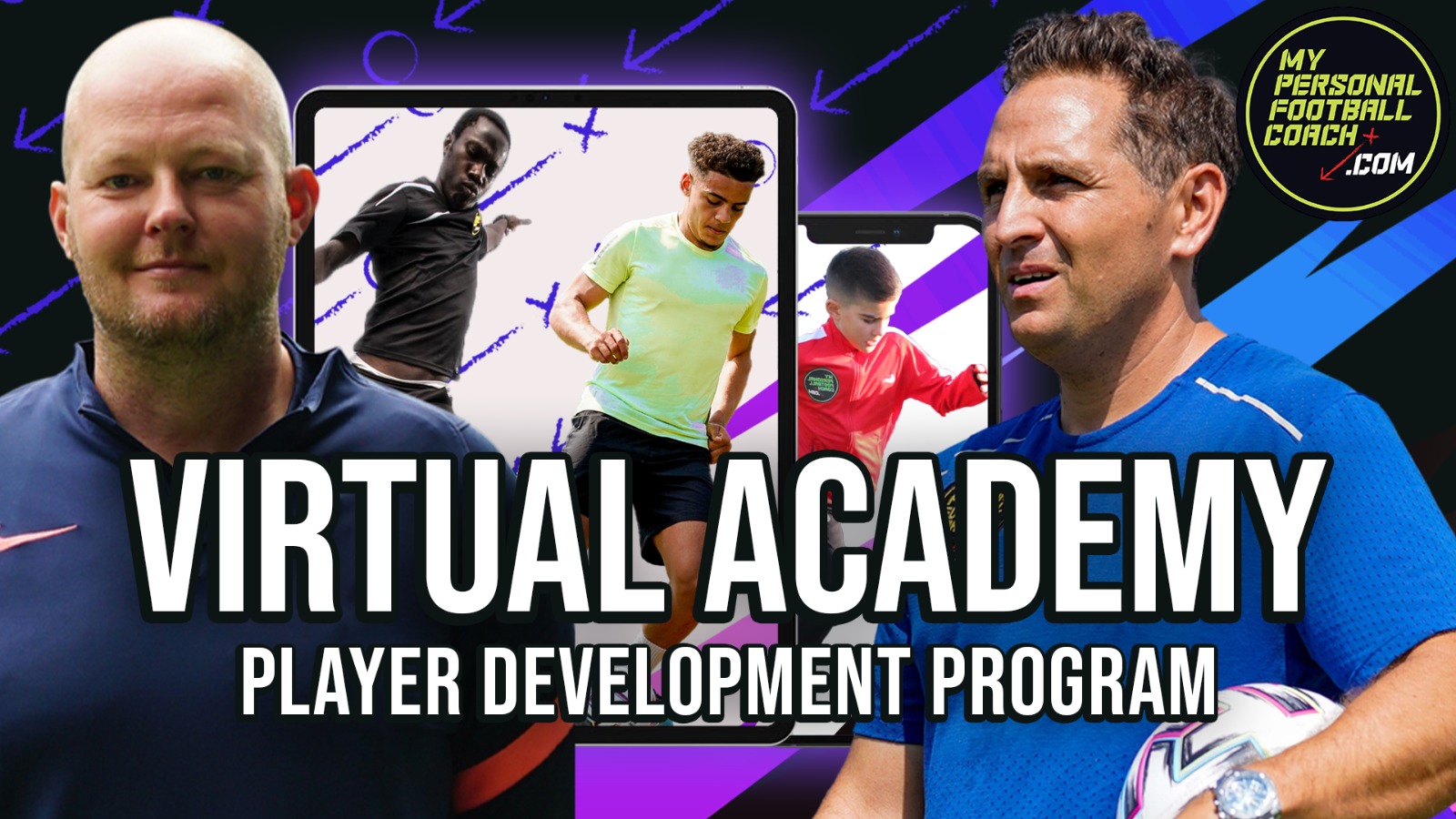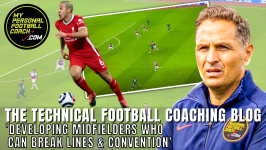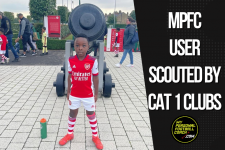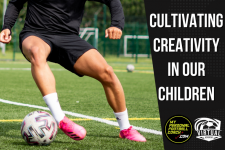During my childhood I remember thinking about nothing other than wanting to be a professional footballer! As a young starry-eyed child, playing all hours of the day on the streets of East London, trying to squeeze as much joy from the game with my friends as I possibly could, whilst harbouring big dreams of captaining England at Wembley, or scoring in an FA cup final, or hopefully just becoming a professional football player one day.
We’ve all been there; we were all starry-eyed children once upon a time, trying to be Eric Cantona in the playground (my collar was uplifted quite often). This is the first thing I want you to remember when we talk about being a ‘Football Parent’. I believe all children need an ‘elite parent’ or the correct adult support and guidance, to help them on their way. What were your experiences as a child trying to learn/pursue excellence in something? How did the adults around you help, or hinder your performance?
How can you improve and become an ‘Elite’ Football parent’?
The title ‘Elite’ is used far too often, it’s misplaced and often unjustified and without supporting substance, but I believe I’ve seen first-hand Elite parent behaviour in my time, both with ‘football parents’ and just in general.
Those seemingly absolute expert parents that have ignited and influenced their children’s development in such positive ways, that has created successful athletes and the development of exceptional human beings. I have tried to steal some of the correct and helpful behaviours that I’ve seen first-hand that have helped catapult young people to brilliant success across many disciplines from academic, athletic, football and even just by being amazing citizens and inspiring young people.
I believe that being Elite at anything is not in a title or word, because we are all either just ‘Mum’ or ‘Dad’ to our children. Being ‘Elite’ is about your daily attitudes, effort, mindset, approach, behaviours, efficiency, consistency, succeeding, failing and being able to respond well to both and excellence amongst other things.
In 2008 I became a parent for the first time (I’m no expert and there’s no magic rule book as we all know), but once I became a parent, my opinions on coaching, teaching, and helping young people develop started to transform for the better. I started to see the world through my children’s eyes and feel the world around them, trying to put myself in their tiny, inexperienced shoes, looking out at the big wild world (this is not always easy to do). By doing this I’ve developed a greater sensitivity to how other adults would speak, act, engage with and just behave around my very own precious children. Being a parent has made me more mindful around other children too, as I know they are listening and absorbing stuff even when we think they aren’t.
Do you as a parent need to become more Mindful? We all must check, challenge, and remind ourselves daily if we want to do our best by and for our children.
How many times have we seen disastrous adult/parent behaviour on the side of a practice or the touchline on a matchday? Too often! (Is surely the only respectable answer.) How many times has a young boy/girl had to suffer a miserable car journey home, with ‘the dreaded talk’ from ‘Pops Guardiola’ or ‘Jose Mumminho’?
I’ve also been that over-involved parent sitting on the side of a swimming pool when my 7-year-old daughter was trying to learn how to swim…. I was doing front crawl, breaststroke, all sorts with my arms, whilst sitting in the stands and calling out to my daughter across the swimming arena whilst she was trying to ‘Learn’ and her coach was trying to teach, coach, nurture, help her and inspire a love of swimming and most importantly, a love of learning. What happened? The coach looked at me, in a way that every coach has looked at an over-eager parent at some point and will know exactly what he was saying; “Dad, please stop! You’re not helping your daughter in any way”!
I questioned myself and reminded myself what Kind of ‘Swimming parent’ I wanted to be, or thought was helpful for my children’s development. More importantly what ‘Dad’ did my daughter want and need me to be?
Having coached since 1999 I’ve seen my fair share of parenting behaviours that most definitely have hindered a child’s progress and development. We all do things differently, but can we all do things aligned in terms of ‘intent’, and ‘purpose’ when it comes to our parenting skills and helping our children better develop?
It’s through a mixture of these experiences, I’m going to try and share with you some tips and ideas that I’ve seen and experienced on my journey to date, that may help us parents to become ‘Elite Football Parents’.
PUT YOURSELF IN YOUR CHILD’S SHOES
- Try to remember what being a child was like.
- Try to remember what parent/adult support you would have wanted as a child.
- Try to be positive and encouraging of effort, behaviour, sportsmanship, good play, and performance.
- Accept that success and failure is part of developing a young child’s character and ability.
- Child first, footballer second! Your child is just a child, don’t get caught up in adult goals and expectations. Let them be children.
AT THE PRACTICE/PLAYING PITCH
- Catch your child and others behaving well and applaud/encourage the correct attitudes.
- Applaud/encourage good play, behaviour, effort, and performance from all children. (As you would want for your children too.)
- Remember it’s a game and your children will soon be grown up, make sure you are helping them ‘enjoy’ and not ‘endure’ the experience.
- Try not to get caught up in the outcomes of winning, losing, success or failure. Focus on the learning and development and small steps of success.
- Be a supporter on the side-line, not a critic, not a coach or commentator. Plenty of positives. Well done Joe or Julia is sometimes enough!
THE JOURNEY HOME
- Simply ask your child how they played/ let them express themselves and move on, be ready for tomorrow’s practice.
- Understand that it’s natural and ok for them to be down about losing, and high about winning. They move on quickly, you should too.
- If you do want to give feedback at some point, just highlight 2-3 things you noticed they have done well.
- Encourage them to communicate with and build positive learning relationships with their coaches, teachers, and teammates. Encourage ownership of their ‘football’ learning.
- If they had an absolute nightmare of a practice session, get them to write it down on paper, go home and ‘bin it’, it’s where rubbish belongs.
Please remember your child’s sporting performance does not define you as a parent, nor your child as a person, they are just a part of their success and who they are. Their character and how they behave through the ups and downs is a greater reflection of you as a parent, and the wonderful job you are doing.
Can you become an Elite football/Soccer parent? I dare you too!
Until next time,
Take care
Aspiring football players can join Glen, Saul and more top-class coaches on the Virtual Academy for the ultimate player development program, working on players technical, tactical, physical and mental aspects of the game.
Now featuring 1on1 video calls and mentoring, player progress reports and exclusive training tutorials used in elite academies.

